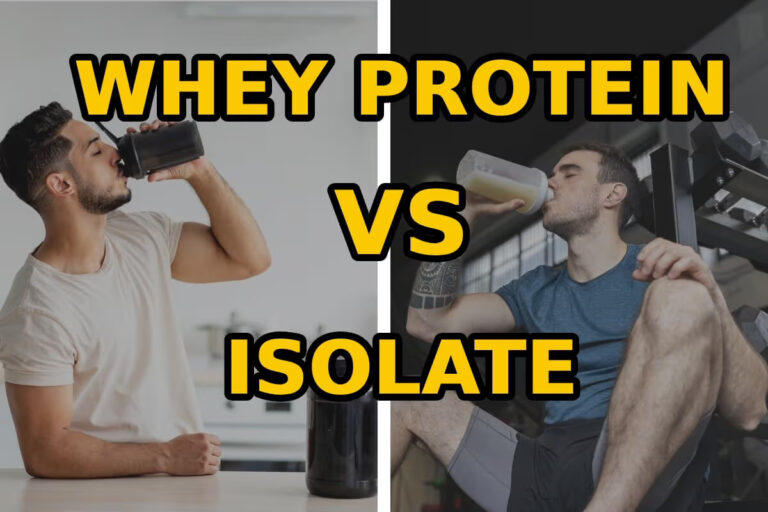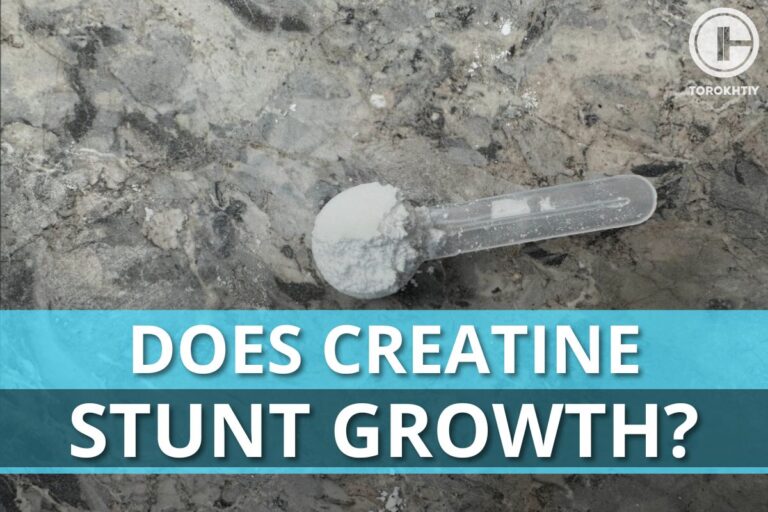Soy Protein vs Whey Protein: Which Is Better?
Wondering what the difference is between soy protein vs whey. These are 2 very similar supplements that are designed to help you get some extra protein in through your diet. In this article, we’ll be breaking down which of these supplements is right for you, and whether you should choose soy or whey protein. So, if you’re wondering “is whey or soy protein better?” Let’s compare which protein is the better choice for you!
The difference between soy protein vs whey comes down to what they’re made of. Whey protein is a dairy-based protein, while soy is purely plant-based. While soy is vegan friendly, whey will typically have better macros, flavor, and bioavailability, making it more ideal for the average person.
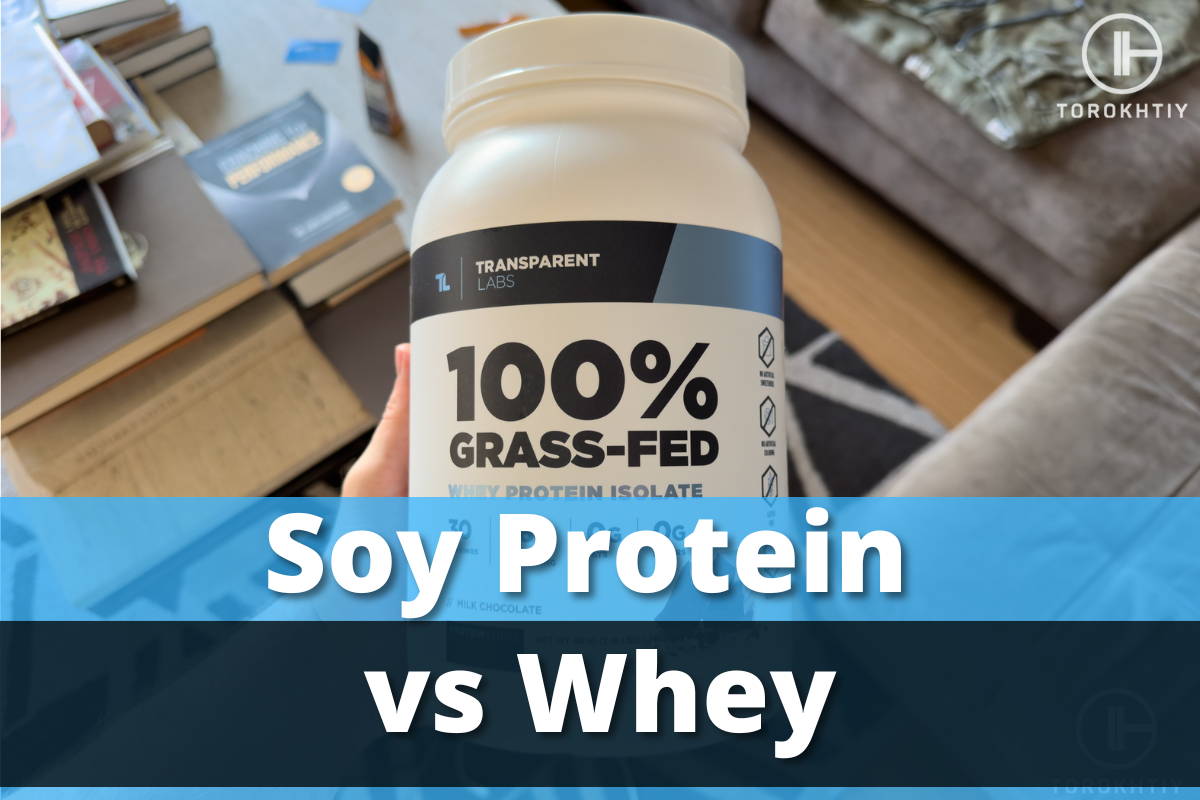
What Is Soy Protein?
Soy protein is similar to other plant-based proteins (pea, brown rice, hemp, etc.) in that it is completely vegan, and a suitable alternative to whey for those who don’t consume any dairy.
Soy protein is made through an extraction process which removes most of the fat and fiber from soybeans in order to create a high-protein powder.
Similar to whey, soy protein comes in the form of concentrates and isolates. Soy protein concentrates will typically have a protein concentration of around 70%, while isolates have a protein concentration closer to 90%.
Unlike many other plant-based proteins, soy contains high amounts of all 9 essential amino acids, making it a complete protein. This makes soy a dietary staple for vegans, as there aren’t too many plant-based foods that are considered complete proteins. This also makes soy a common ingredient in many plant-based protein blends alongside incomplete proteins like pea and brown rice.
While getting adequate protein through a vegan diet is less of a concern than many people think, it can still be difficult for vegans to get high amounts of protein in, especially if they’re trying to build muscle. Because of this, plant-based protein supplements like soy can be a convenient way to reliably get some extra protein in.
What Is Whey Protein?
Whey protein is by far the most commonly consumed protein supplement on the market. Alongside casein, whey is a dairy product commonly processed and sold as a protein powder.
Whey and casein are the 2 types of protein found in dairy. Whey is typically separated from dairy when making cheese, where it is clarified, pasteurized, and dried to form whey protein powder. It is then processed further to produce whey concentrates and isolates. Concentrates will typically have a protein concentration of around 80%, while isolates will be 90% or higher.
Similar to soy, whey is also a complete protein, meaning it contains all 9 essential amino acids. With most animal-based proteins being complete, getting enough of each amino acid is a much smaller concern for omnivores than it is for vegans and vegetarians.
For those who naturally get enough protein through their diet, especially if they already eat meat, eggs, and dairy, protein supplementation is largely unnecessary. With that being said, if you’re trying to build muscle, protein supplementation is a convenient way to hit your daily target, especially if there is a need for high doses of protein (e.g. athletes on a hypocaloric diet).
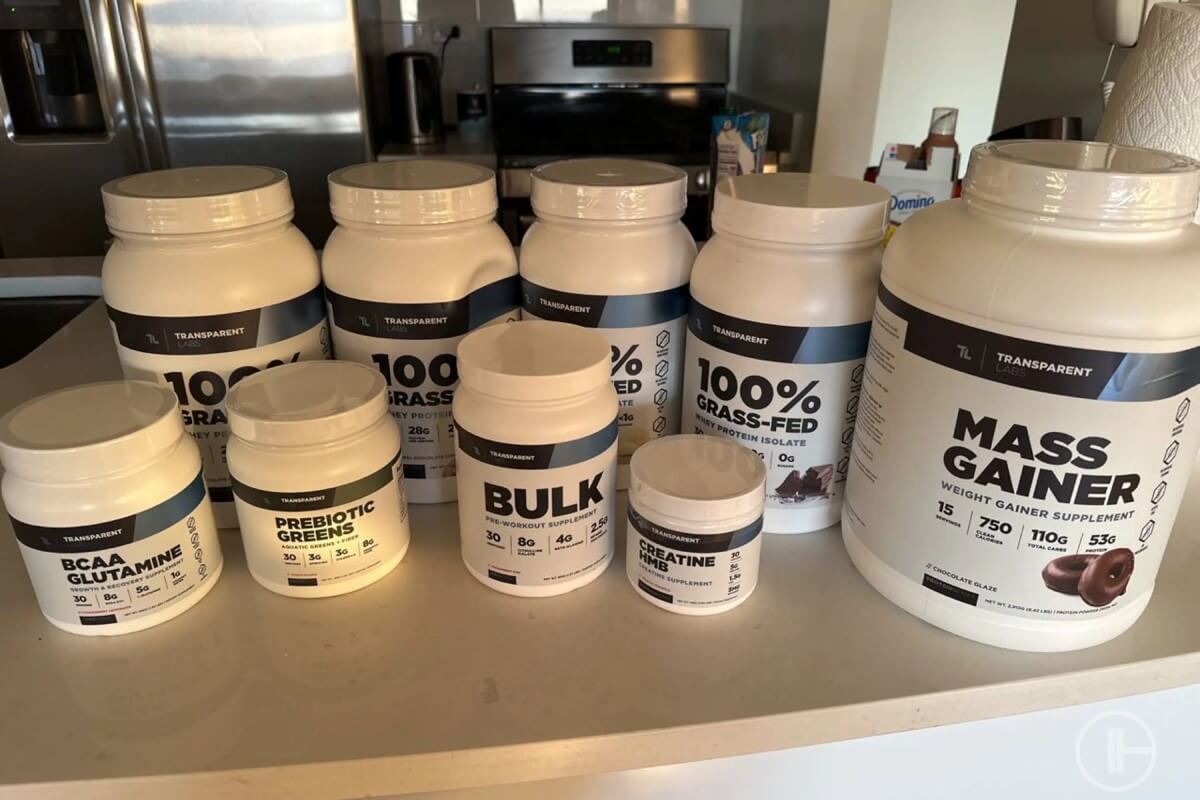
Soy Protein vs Whey
Overall, the difference between soy and whey protein is very minor. Most people will prefer whey for its superior macros and flavor/texture. However, if you’re vegan, soy protein is an excellent dairy-free alternative. Soy is also typically a cheaper alternative to whey for those on a budget. Here are these protein types compared in more detail.
| Criteria | Soy Protein Based on MyProtein’s Soy Isolate | Whey Protein Based on Transparent Labs Whey Isolate: |
|---|---|---|
| Macro Breakdown | Calories: 110 Fat: 0g Carbs: 1g Protein: 26g | Calories: 120 Fat: 0g Carbs: 1g Protein: 28g |
| Flavor/Texture | Although formulas have improved in recent years, soy protein will still typically not have the rich, creamy texture of a dairy-based protein. | Whey protein is one of the most appealing proteins on the market, with a smooth, milkshake-like consistency, and wide range of flavors. |
| Price per Serving | ~$0.81 | ~$1.82 |
| Vegan-Friendly | Soy protein is completely dairy-free, and thus 100% vegan-friendly | Whey protein is derived from dairy, and not suitable for vegans. |
1. Macro Breakdown
Soy protein and whey have very similar macros, especially when comparing high-quality isolate supplements. As you can see from the table above, while both protein supplements have high protein contents, whey slightly edges out soy in this category. It’s also worth noting that whey protein is more bioavailable than soy, making it a superior choice for most people.
2. Flavor/Texture
While soy protein is one of the better tasting plant-based proteins, it still has a somewhat chalky texture especially when compared with whey. Most people will much prefer the smooth texture of whey to soy protein.

3. Price
As you can also see from our product comparison, soy protein is significantly cheaper than whey. Comparing two high quality isolates, the soy product is nearly half the price of the whey. So, if you’re looking for a good budget option, soy may be a better choice for you over whey.
4. Vegan-Friendly
Finally, soy is completely vegan-friendly while whey is not. Whey will be the go-to for most non-vegans, but for those who don’t consume any dairy products, soy protein is one of the highest-quality alternatives around.

Soy Protein vs Whey: Summary
So, is whey protein better than soy protein? Not necessarily.
Overall, when considering whey vs soy protein, these are very similar supplements that serve slightly different purposes.
While their macros are similar, whey will typically have slightly more protein content, as well as being more bioavailable than soy. In terms of flavor and texture, whey will also have a much creamier, smoother texture than soy. For price, soy is significantly cheaper than whey, making it a good budget alternative. And finally, whey isn’t vegan-friendly while soy is, making soy the far superior option for those who don’t consume dairy.
All in all, while most people will prefer whey for its bioavailability, excellent macros and flavor, if you’re vegan or looking for a budget-friendly alternative, soy is a great choice as well.
Pros/Cons of Soy Protein
Positives:
Could be better:

Pros/Cons of Whey Protein
Positives:
Could be better:
Soy Protein vs Whey: When to Use Each?
Both soy and whey protein serve the same purpose: a convenient source of protein to help people hit their daily macro goals. As such, the difference between whey and soy protein when it comes to use is very minimal. If you’re struggling to get enough protein throughout the day, mixing either of these products into a shake or a smoothie can be an easy and reliable way to hit your protein goals.
Best Whey Protein – Transparent Labs Whey Isolate
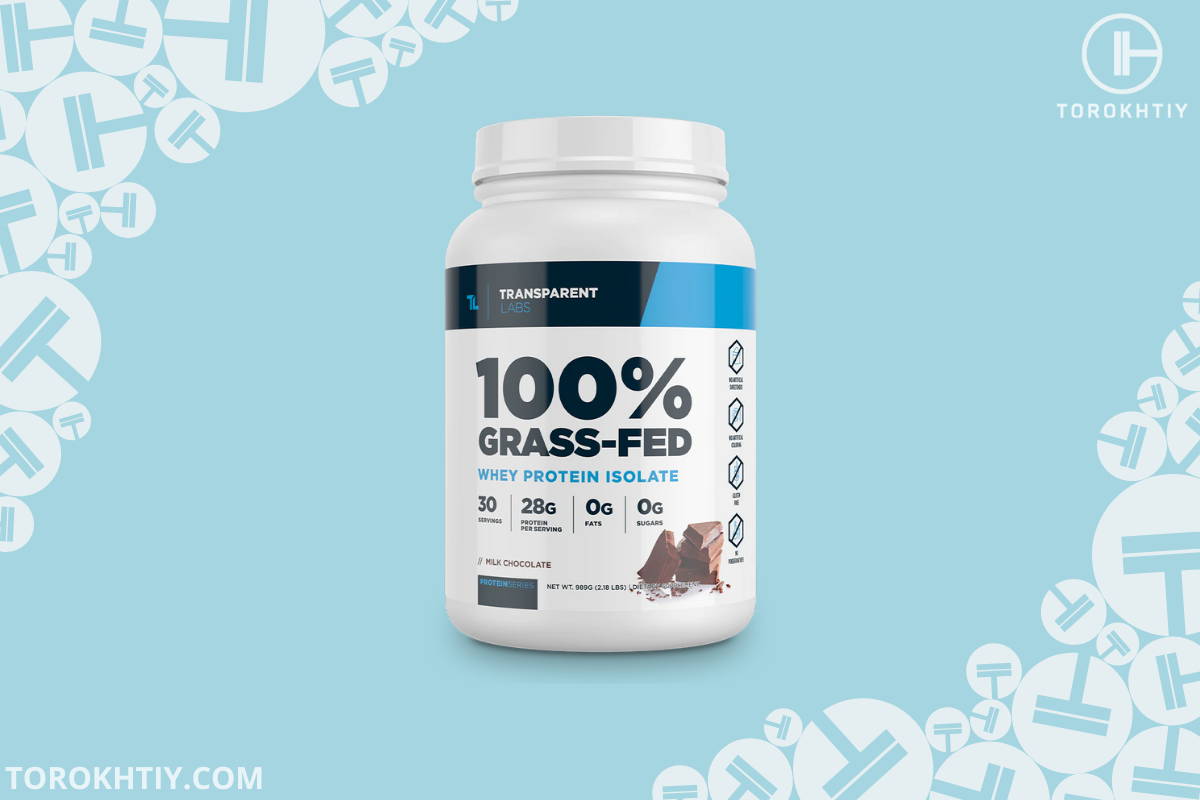
If you’re looking for a high-quality whey supplement, we recommend trying Transparent Labs Whey Isolate.
As this is an isolate supplement, you can expect a stellar 93% protein concentration by calories. With 120 calories, 28g of protein per serving, 0g of fat, and only 1g of carbs, this is a perfect supplement for bulking.
Transparent Labs whey is also derived from organic grass-fed dairy, which has been shown to be healthier than non-organic milk. On top of this, like all of Transparent Labs’ products, you can expect no artificial ingredients whatsoever.
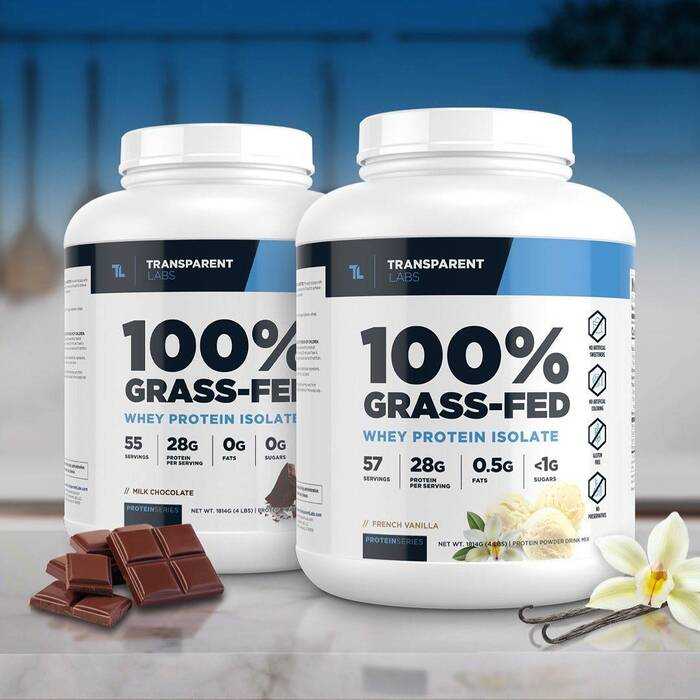
One slight downside here is that this product doesn’t have much flavor variety. It only comes in the 2 most standard protein powder flavors: chocolate and vanilla. Also, as previously mentioned this is a fairly expensive product at around $1.82 per serving. Keep in mind, this is also for the 4lb tub as it offers the best value for money. With this being said, you’ll be hard-pressed trying to find a higher-quality whey supplement at any price point.
Best Soy Protein – MyProtein Soy Protein Isolate
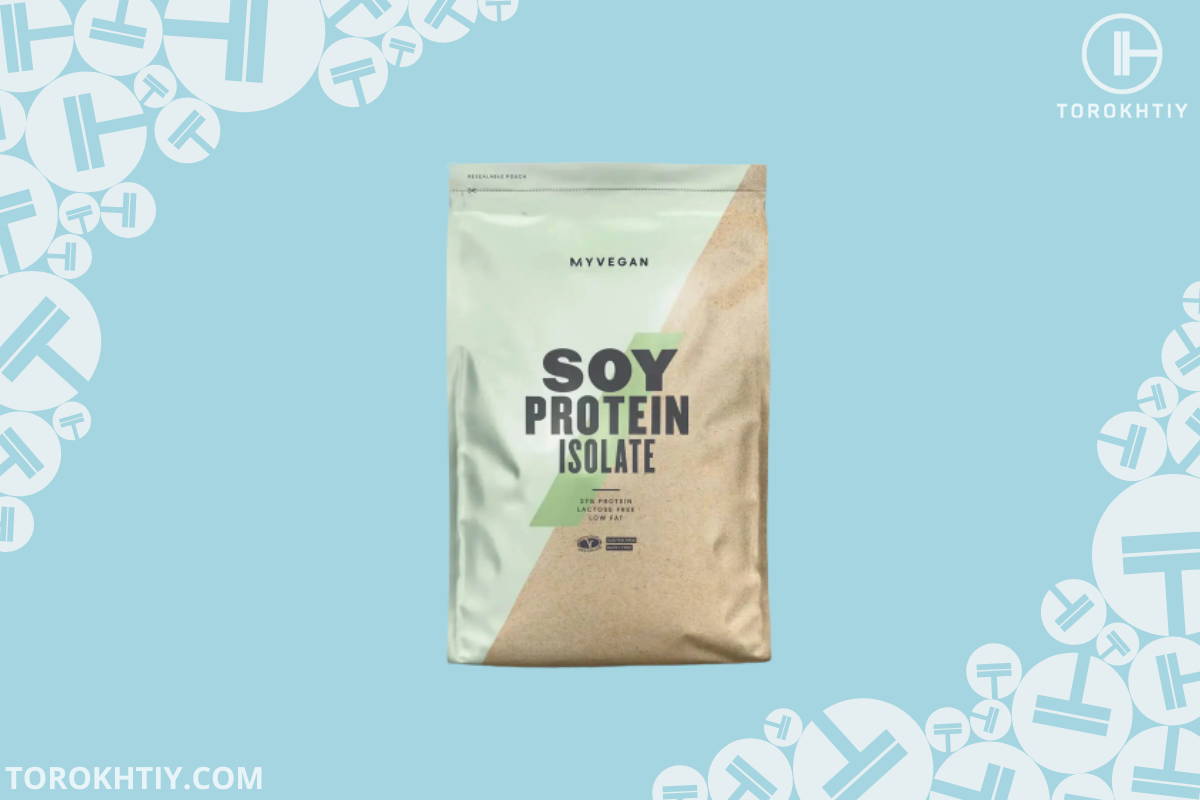
Next, if you’re looking for a great soy protein, then check out MyProtein’s Soy Protein Isolate.
While soy typically has the highest protein content of all plant-based protein supplements, there aren’t many other soy proteins available with macros as impressive as this product. It rivals a whey isolate with a solid 95% protein concentration by calories. With 110 calories, 26g of protein, 0g of fat, and 1g of carbs, this is also an ideal supplement for dieting.
It’s worth noting that MyProtein doesn’t have the same all-natural formula as Transparent Labs, featuring several artificial ingredients such as sucralose.
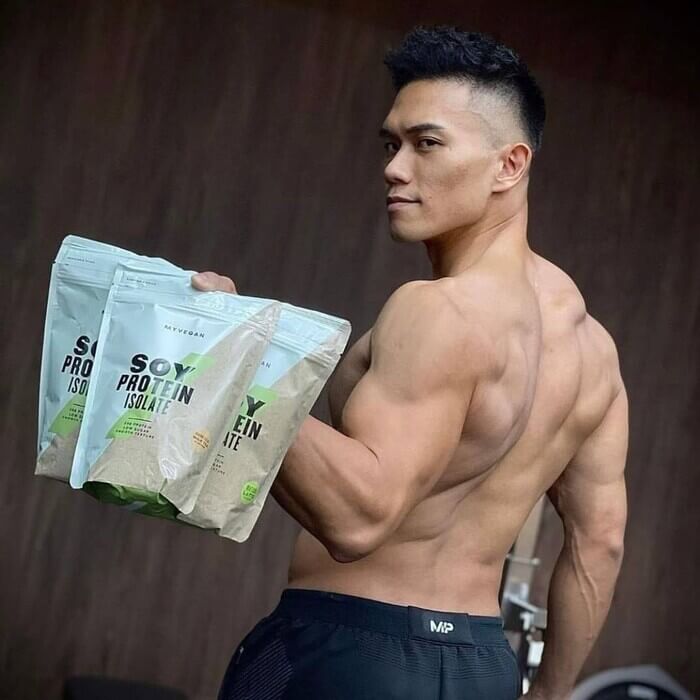
MyProtein also offers a slightly more impressive flavor profile than Transparent Labs with 5 options to choose from. They offer 2 variations each on chocolate and vanilla, as well as an unflavored option.
As mentioned above, this is a much more budget-friendly option when compared to whey isolate, coming in at around $0.81 per serving – that’s over a dollar cheaper than Transparent Labs! So, if you’re looking for budget-friendly or vegan protein powder, this would be a great choice.
FAQ
Is Soy Protein Better Than Whey Protein?
While soy protein certainly has its applications – it’s great for vegans or those looking to save some money – it’s not a superior product to whey in most scenarios. Whey will typically have slightly better macros, as well as a much smoother texture. For this reason, the vast majority of people will likely prefer whey over soy, even if it is a great alternative.
Can You Build Muscle With Soy Protein?
Yes! Studies have shown that complete plant protein is just as effective at increasing muscle protein synthesis as whey. Because soy protein contains all 9 essential amino acids, it is a complete protein. This makes it perfect for putting on muscle, especially as a vegan. It’s worth noting that super high protein intake like 1g+/lb of bodyweight isn’t necessary for muscle gain, with a range of 0.5-0.8g/lb of bodyweight being sufficient for most people.
What Are the Drawbacks of Soy Protein?
The main drawbacks to soy protein are that it’s not as bioavailable as whey, and that it has a somewhat chalkier texture as well. While these certainly aren’t major flaws, they will make whey more appealing for the majority of people. Of course, if you’re allergic to soy, it will not be a suitable protein source. With that being said, some major pros to soy are that it’s vegan-friendly as well as being a great budget alternative to whey.
Should You Use Whey or Soy Protein for Weight Loss?
This is an area where whey and soy protein are very equal! Especially with high-quality isolates, they have similarly low calorie counts alongside high protein content. When you’re eating in a caloric deficit, you want to maintain a high level of protein in your diet. This makes both whey and soy protein isolates ideal supplements for weight loss.
Conclusion
Overall, if you’re trying to decide between soy or whey protein powder, both have their advantages. If you’re vegan, or looking for a budget-friendly alternative, then soy protein will be perfect for you. However, if you’re looking to maximize bioavailability and protein content, as well as have a tastier shake, then whey will be for you. Whichever protein type you decide, both are high-quality, convenient sources of protein.
If you’re looking for a high-quality whey isolate supplement, we recommend going with Transparent Labs Whey Isolate. If you want a great soy protein instead, then check out MyProtein Soy Protein Isolate.
Have you tried both whey and soy protein? Which one do you prefer? We’d love to hear your thoughts in the comments below!
Also read:
- Whey Protein vs Casein
- Does Protein Help You Poop
- Best Lactose Free Protein Powder
- Best Egg White Protein Powder
- How to Make Protein Shakes Taste Better
- Why Do Protein Shakes Make Me Nauseous
- Best Post Workout Snack
- How to Get Rid of Lactic Acid
- Are Protein Bars Good for You
References:
- Boca Raton, PLANT (VEGETABLE) PROTEINS Concentrates and Isolates (CRC Press, 1998), http://faculty.fshn.illinois.edu/~mcheryan/soy.htm.
- “Protein” Harvard University Home, http://surl.li/kxjrx (accessed 2023).
- Marjorie Geiser, The wonders of whey protein, http://surl.li/kxjrv.
- Brad Heins, “Grass-fed cows produce healthier milk” University of Minnesota Extension, http://surl.li/kvogd (accessed 2021).
- Philippe J M Pinckaers 1 2, Imre W K Kouw 1 2, Stefan H M Gorissen 2, Lisanne H P Houben 2, Joan M Senden 1 2, Will K H W Wodzig 3, Lisette C P G M de Groot 1 4, Lex B Verdijk 1 2, Tim Snijders 1 2, Luc J C van Loon, “The Muscle Protein Synthetic Response to the Ingestion of a Plant-Derived Protein Blend Does Not Differ from an Equivalent Amount of Milk Protein in Healthy Young Males” National Library of Medicine, https://pubmed.ncbi.nlm.nih.gov/36170964/ (accessed Jan 14, 2023), 152(12):2734-2743.
Why Trust Us?
With over 20 years in Olympic Weightlifting, our team does its best to provide the audience with ultimate support and meet the needs and requirements of advanced athletes and professional lifters, as well as people who strive to open new opportunities and develop their physical capabilities with us.
By trusting the recommendations of our certified experts in coaching, nutrition, dietology, and sports training programming, as well as scientific consultants, and physiotherapists, we provide you with thorough, well-considered, and scientifically proven content. All the information given in the articles concerning workout programming, separate exercises, and athletic performance, in general, is based on verified data. We ensure that you can rely on our professionals’ pieces of advice and recommendations that can be treated as personalized ones which will benefit you and fully meet your needs.
The product testing process is described in more detail here
Author: Oleksandr Maksymenko
Certified Sports Nutritionist,
MSc Sports Dietetics
Specializing in: Weight management, Fitness / Sports nutrition
Oleksandr is a professional fitness nutritionist certified by the Fitness Professional Association (FPA). He follows the principles of evidence-based dietetics and fosters a healthy relationship with food in his clients, ensuring there are no strict prohibitions on their favorite foods or frequent lapses. His primary goal is not only to achieve results for you but also to sustain them over the long term, all while enjoying tasty and delicious food.




